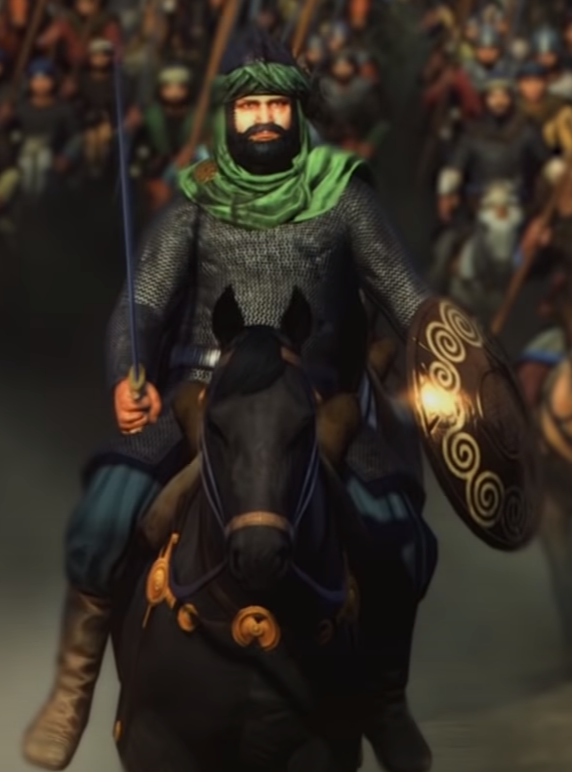

Khalid's mother was al-Asma bint al-Harith ibn Hazn, commonly known as Lubaba al-Sughra ("Lubaba the Younger", to distinguish her from her elder half-sister Lubaba al-Kubra) of the nomadic Banu Hilal tribe. The historian Muhammad Abdulhayy Shaban describes Khalid as "a man of considerable standing" within his clan and Mecca in general. Khalid's paternal uncle Hisham was known as the "lord of Mecca" and the date of his death was used by the Quraysh as the start of their calendar. Their prominence was owed to the leadership of Khalid's paternal grandfather al-Mughira ibn Abd Allah. The Makhzum are credited for introducing Meccan commerce to foreign markets, particularly Yemen and Abyssinia (Ethiopia), and developed a reputation among the Quraysh for their intellect, nobility and wealth. He belonged to the Banu Makhzum, a leading clan of the Quraysh tribe and Mecca's pre-Islamic aristocracy.

837) as the "derider" of the Islamic prophet Muhammad mentioned in the Meccan suras (chapters) of the Qur'an. Al-Walid is identified by the historians Ibn Hisham (d.

Khalid's father was al-Walid ibn al-Mughira, an arbitrator of local disputes in Mecca in the Hejaz (western Arabia). His military fame disturbed some of the pious, early Muslim converts, including Umar, who feared it could develop into a personality cult. The Islamic tradition credits Khalid for his battlefield tactics and effective leadership of the early Muslim conquests, but accuses him of illicitly executing Arab tribesmen who had accepted Islam, namely members of the Banu Jadhima during the lifetime of Muhammad and Malik ibn Nuwayra during the Ridda wars, and moral and fiscal misconduct in Syria. Khalid is generally considered by historians to be one of early Islam's most seasoned and accomplished generals and he is commemorated throughout the Arab world until the present day. Umar dismissed Khalid from his governorship of Qinnasrin afterward and he died in Medina or Homs in 642.

Khalid continued service as the key lieutenant of his successor Abu Ubayda ibn al-Jarrah in the sieges of Homs and Aleppo and the Battle of Qinnasrin, all in 637–638, which collectively precipitated the retreat from Syria of imperial Byzantine troops under Emperor Heraclius. He was afterward demoted from the high command by Umar for a range of causes cited by traditional Islamic and modern sources. As a result of decisive victories against the Byzantines at Ajnadayn (634), Fahl (634), Damascus (634–635) and Yarmouk (636), the Muslims under Khalid conquered much of Syria. He was reassigned by Abu Bakr to command the Muslim armies in Syria and he led his men there on an unconventional march across a long, waterless stretch of the Syrian Desert, boosting his reputation as a military strategist. Khalid subsequently moved against the largely Christian Arab tribes and the Sasanian Persian garrisons of the Euphrates valley in Iraq. After Muhammad's death, Khalid was appointed to suppress or subjugate Arab tribes in Najd and the Yamama (both regions in central Arabia) opposed to the nascent Muslim state, defeating the rebel leaders Tulayha at the Battle of Buzakha in 632 and Musaylima at the Battle of Aqraba in 633. Khalid coordinated the safe withdrawal of Muslim troops during the abortive expedition to Mu'ta against the Arab allies of the Byzantines in 629 and led the Bedouin contingents of the Muslim army during the capture of Mecca and the Battle of Hunayn in c. Following his conversion to Islam in 627 or 629, he was made a commander by Muhammad, who bestowed on him the title Sayf Allah ('the Sword of God').


 0 kommentar(er)
0 kommentar(er)
